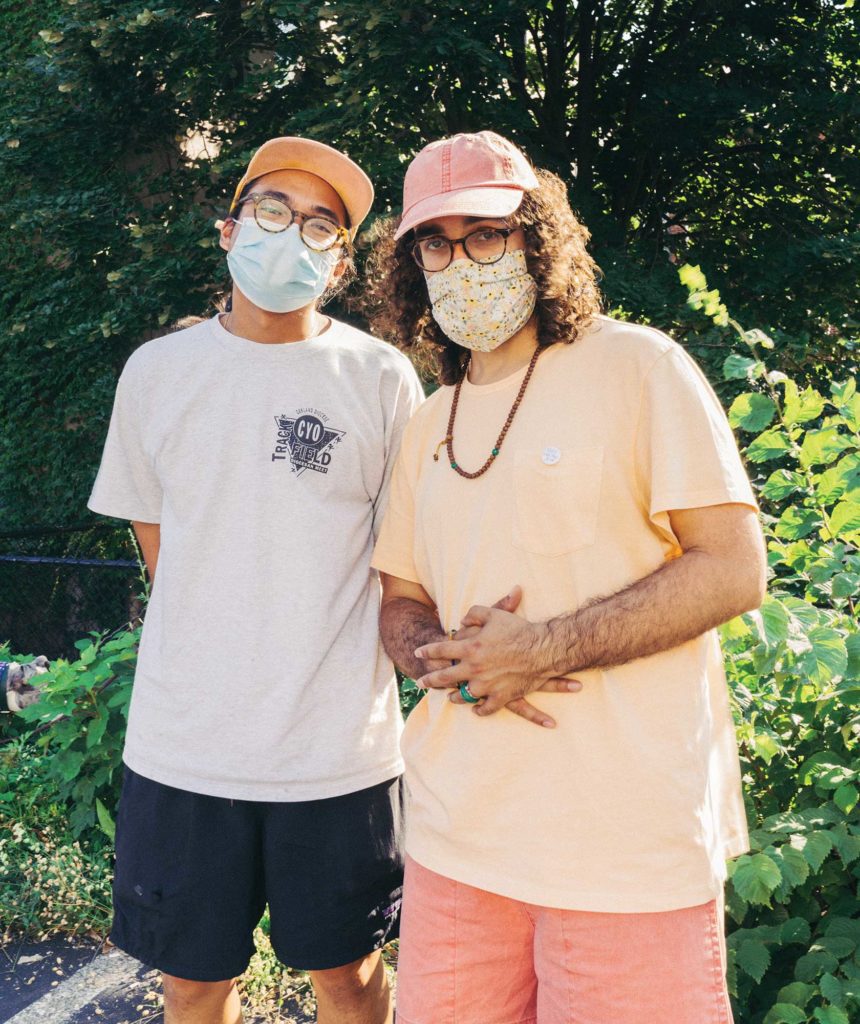Radical Imagination for Racial Justice grantees bring creative works to fruition

In May of 2020, Massachusetts College of Art and Design and the City of Boston announced a re-granting program to support artists of color through a project called Radical Imagination for Racial Justice (RIRJ), utilizing a $1.2 million grant from the Surdna Foundation. Now, a year and a half later, the fruits of the artistic labor are being borne and artists who received grants are beginning to debut their community-oriented racial justice works.
“Artists of color have known for a long time what is essential for the liberation of themselves, their collectives and their communities. And too often grant opportunities have passed over BIPOC artists,” says Cecilia Méndez-Ortiz, RIRJ program co-director and executive director of MassArt’s Center for Art and Community Partnerships. Artists were chosen to use grants ranging from $1,000 to $40,000 to foster local community and explore the themes of racial justice and equity.
The artistic duo Adobo-Fish-Sauce (Anthony Febo and Ricky Orng) collaborated with I Learn America, Horace Mann School for the Deaf and Hard of Hearing, and Boston International Newcomers Academy. Utilizing food as the catalyst for memory and personal growth, Febo and Orng worked with young people, dubbed “poet-chefs,” to select a recipe that had a personal connection to them. After making the recipe and using the experience to probe their inner selves, the poet-chefs wrote poetry inspired by the experience.
“Regardless of where you come from, regardless of what you believe in, everybody has to eat,” says Febo. “We always aim to leave you feeling full, whether that’s through the food or through the experience.”
Adobo-Fish-Sauce will be hosting similar community workshops throughout the fall. Anyone can participate. Community members will bring their own lunches, everyone will eat together and discuss their experiences and then there will be an open-mic-style opportunity to share the resulting creative work. The duo will announce the “In the Park” event schedule on their Instagram, @adobofishsauce.
While Febo and Orng feed Bostonians’ stomachs, musician and composer Fabiola Méndez will feed their ears. Working in partnership with Hyde Square Task Force, Méndez has created a documentary titled “Negrura” exploring Afro-Latinx experiences in Boston’s Latin Quarter. In the 30-minute film, she probes colorism and the taboo of discussing it in the Latinx community, as well as how gentrification has impacted the Afro-Latinx residents or former residents of the neighborhood.
“It is different if you have lighter skin, if you have darker skin, being Latino,” says Méndez. “This project was inspired by that idea that we can have those conversations, and hopefully this project can inspire conversations between other folks.”
Méndez conducted interviews with Afro-Latinx residents of the Latin Quarter, which she used in the film. She then pulled quotes from those interviews and composed improvisational music based on the feelings they evoked in her. Those compositions will be utilized in the film as well. Méndez hopes to screen the film in November and then make it available for university and public use.
These projects are just a selection of the powerful works debuting on a continual basis as a result of the RIRJ program. The grant program is unique not just in its focus on artists of color and racial justice, but for its emphasis on the artists’ experience during the process, with 20% of all grants required to go towards the artists’ well-being, whether that was to help pay rent, get a haircut or start an investment account. The RIRJ team recognized, rather unusually, that these art works are not springing from an eternal well of creativity. The artists need to be fostered as well.
“If things are made better for Black, Indigenous and artists of color, they will generally be better for everybody,” says RIRJ’s Méndez-Ortiz. “Arts provide a way for people to tell their truths, share their stories and ultimately navigate finding solutions for a better world.”









